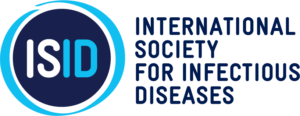SSI/ISID Fellowship
ISID and the Swiss Society for Infectious Diseases (SSI) jointly sponsor the SSI/ISID Infectious Diseases Research Fellowship Program.
The purpose of this Fellowship Program is to support infectious disease physicians and scientists from under-resourced countries through multidisciplinary clinical and laboratory training at a select biomedical institution in Zurich, Switzerland.
The objectives of the Fellowship Program are:
- To train promising young physicians and scientists from under-resourced countries for clinical and research positions in infectious diseases
- To foster partnerships between fellows and infectious disease leaders in Switzerland
- To increase scientific research capacity in under-resourced/high disease burden countries
Opportunities for training and research in a variety of areas ranging from basic studies of the mechanism of disease to studies in public health, epidemiology, diagnostics, therapeutics or vaccine development, are available through this program.
The term of the Fellowship is for one year. The start date will be determined by arrangement between the host institution and the Fellow.
A financial stipend of up to 50,000 CHF per year (approximately $51,000 USD) will be given to Fellows to cover travel costs and living expenses. The program intends to award one fellowship every year.
Eligibility
The SSI/ISID Fellowship program is open to applicants who are 40 years or younger, citizens and permanent residents of under-resourced countries or Eastern Europe. Applicants should have either a M.D. or Ph.D. in a relevant field and hold a position at a medical, research or public health institution.
NOTE: Applicants are required to be proficient in writing and speaking English.
Requirements
Applications should be made using our online submissions system and include:
- Curriculum Vitae
- A letter of commitment from the applicant’s home institution guaranteeing position upon completion of the fellowship
- Letter of recommendation
- Personal statement describing career goals and objectives, and relevance of training
Selection Process
Applications will be reviewed by a joint SSI/ISID committee.
Additional Information
Training Sites
The SSI/ISID Fellow will be placed at a collaborating research center in Zurich, Switzerland. The infectious diseases program at the institution offers experience in clinical infectious diseases, including HIV, and microbiology.
The SSI/ISID Fellowship is now closed.
Zurich
Description
The overall focus of our research program is on infectious diseases and hospital epidemiology comprising studies on host-pathogen interactions and immune response, pathogenesis, therapy and epidemiology and involves epidemiological, infection control, clinical, basic and translational, research.
Our epidemiology group focuses primarily on long-term treatment aspects of antiretroviral therapy, such as treatment outcome, side effects and toxicity. Lately, HIV/HCV, HIV/MTB and HIV/HBV coinfections are studied more intensely as hepatic infections have a major impact on survival for patients receiving highly successful anti-HIV therapies. Furthermore, liver disease in general is being studied in HIV-infected patients because it may also be drug related. Many of these studies are performed in the framework of the Swiss HIV cohort study.
(PIs: Roger Kouyos, Huldrych Günthard).
Our infection control and hospital epidemiology groups investigate the epidemiology of healthcare-associated infections, rapid microbiological diagnostics and typing, and the impact of infection prevention and control measures in combination with antimicrobial stewardship on antimicrobial resistance. Key goals are generating actionable data on healthcare-associated infections, testing infection prevention and control strategies in clinical practice, understanding the epidemiology of multidrug-resistant microorganisms, and limiting antimicrobial resistance in acute care.
(PIs: Walter Zingg, Peter Schreiber, Miriam Vázquez, Aline Wolfensberger, Annelies Zinkernagel, Silvio Brugger).
Our clinical research program includes phase II and III trials of new therapeutic drugs against infectious diseases. An additional strong focus is on improving and evaluating established treatment strategies in particular also with regard to emergence of HIV drug resistance. We have also intensified our collaborative efforts with cardiac, vascular and orthopedic surgeons to study endocarditis, vascular graft and orthopedic implant infections.
(Senior scientists: Dominique Braun, Barbara Hasse, Silvio Brugger).
Our basic and translational research groups focus on investigating the interplay between pathogens and the human host with a particular focus on viral and bacterial infections. Our current research projects investigate human infections with HIV, HCV, EBV, CMV, influenza, Group A streptococcus, staphylococci, mycobacteria and the interplay of pathogens with the human microbiota; in healthy and immunosuppressed individuals
(PIs: Huldrych Günthard, Karin Metzner, Roberto Speck, Nicolas Müller, Irene Abela, Silvio Brugger, Johannes Nemeth and Annelies Zinkernagel)
Eligibility criteria
• Clinical Work: Excellent language skills in German (oral and written) mandatory
• Research: English
Website
